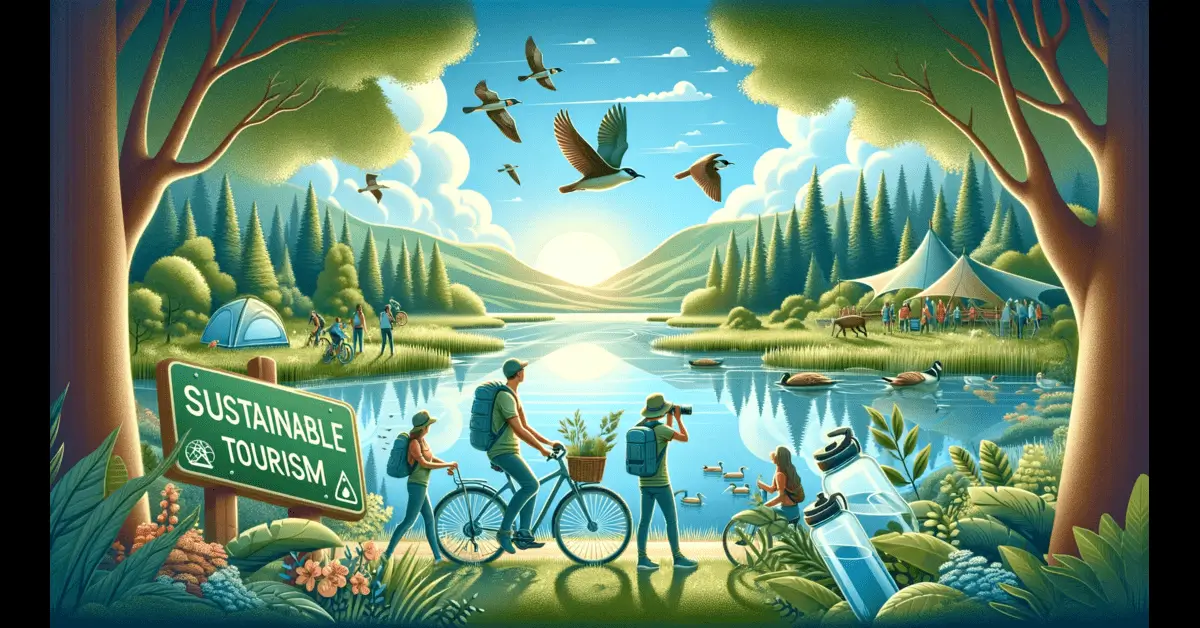Sustainable travel is most relevant, with people finally resuming their travels worldwide after the COVID-19 pandemic. Sustainable tourism is a practice that takes measures to reduce the erosion of natural environments and allow travelers to visit the destinations to create income-generating opportunities for the local people. Sustainable practices are especially important in protecting the concept and interest of the traveling public and tourism-peripheral States.
Definition of Sustainable Tourism
Sustainable tourism is described as tourism that is both environmentally friendly, socially responsible, and economically feasible. This aims to meet the desires of tourists and those of the community and the physical environment to which those tourists are being taken to avoid interfering with the rights of future generations to enjoy those same resources.
Ways of Maintaining the Tourism Business
Eco-Friendly Accommodations:
When it comes to accommodation, it is possible to opt for more sustainable solutions now that environmentally-friendly hotels, known as eco-hotels and eco-lodges, are becoming increasingly popular. Many of them embrace issues concerning energy efficiency, the use of renewable power, and participation in the preservation of local natural resources.
Responsible Transportation:
This is because choosing public transport, cycling, or walking lowers one’s carbon footprint regarding mobility. Air travel is sometimes essential; passengers can balance that by financing environmental initiatives.
Support Local Economies:
Supporting local items during a visit, taking meals at family-owned eateries, and buying items produced by local artisans help support the local economy. Incorporating a Guide and Tour implies that the people in a particular region will benefit fully from their tourism.
Minimize Waste:
Eco observance is achieved by minimizing wastage by using reusable products instead of plastics and disposing of waste appropriately. Tourists can also engage in exercises like cleaning up the beach or any conservation efforts for the visited regions.
Respect Wildlife and Nature:
Other ways of preserving the natural habitat include staying away from animals and plants that one comes across when out in the field, avoiding activities that adversely affect animals, and walking only on set trails. Sustainable tourism solutions respect the environment and reinforce the conservation of the planet’s ecosystems.
Trends in Sustaining Tourism
Slow Travel:
With an aim at quantity over quality approach, slow travel promotes a more immersive kind of travel. When people travel around for more time, they have a better chance of realizing the cultures and environments around them.
Digital Nomadism:
Due to the spread of telecommuting, there is a phenomenon of digital nomads that can work while they travel. However, due to the various impacts of tourism, sustainable digital nomadism aims to select destinations that can sustain online workers’ living needs for a long time without putting a lot of pressure on local resources.
Eco-Tourism Certification:
Certification and labeling of sustainable practices needed to afford travelers some means of making an accurate decision. Accredited certifications guarantee that accommodation, tourist deliveries, and experiences meet the specific Sustainability agenda.
Carbon Neutral Travel:
This has made more and more people use means to achieve carbon neutrality when choosing different travel options. This means patronizing renewable energy projects, tree planting activities, and other sustainable, environmentally friendly activities to offset the polluting effusion accompanying the tours.
The Role of Technology
In supporting sustainability, technology is the key enabler of sustainable tourism development. Many local services and applications are informing that provide information about environmentally friendly accommodations, sustainable travel schedules, and best practices for tourism. Further, data analytics enables tourism management in terms of numbers, assessment of impacts on the environment, and planning.
Conclusion
Sustainable tourism is not an evolution but a basic line that has to be followed if the industry and travel, in general, have to stay beneficial and meaningful for the future. This means travelers can ensure that the world’s environment is green and that people of different communities are empowered through appropriate practice. With the future of tourism as a global industry and the shrinkage of annual leasable vacations, sustainability will become mandatory to preserving our world’s heritage.






